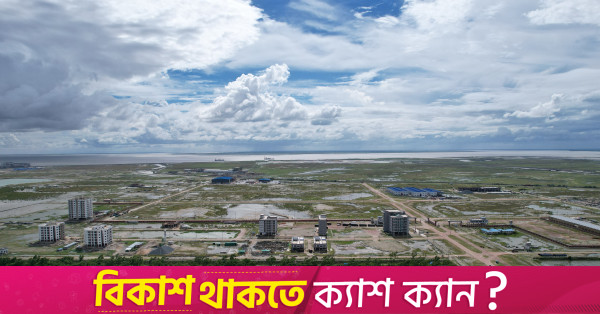Representatives from over 60 companies, mostly foreign, will visit three economic zones in Chattogram and Narayanganj during the Bangladesh Investment Summit 2025, scheduled from 7 to 10 April in Dhaka, as the organisers aim to showcase the manufacturing potential of these zones, according to officials from the Bangladesh Investment Development Authority (Bida).
A team of visiting investors, their advisers, and consultants will explore the Korean Export Processing Zone in Anwara, Chattogram, and the National Special Economic Zone in Mirsharai, Chattogram, on 7 and 8 April, the officials say.
Another group will visit the Bangladesh Special Economic Zone, also known as the Japanese Economic Zone, in Araihazar, Narayanganj.
“We want to let them see the sites and the available facilities there,” Bida Executive Chairman Chowdhury Ashik Mahmud Bin Harun told The Business Standard.
Alongside foreign investors, the authority is also taking a number of local entrepreneurs who are “close to making an investment decision,” according to Ashik Mahmud, who is also the Executive Chairman of the Bangladesh Economic Zones Authority (Beza).
A list of visiting investors, seen by TBS, includes investment analysts and bankers representing UAE-based JPG Investments, USA-based Anchorless Bangladesh and Sinbad Capital, HSBC, China’s Rainmaker Ventures, and Talents Investment Management LLP.
Executives from several consulting firms in the Netherlands, USA, and Singapore are also among the visitors to the special economic zones.
Additionally, several dozen foreign companies operating in construction, industrial development, engineering, energy and power, and chemicals from China, Saudi Arabia, India, and Japan will also be attending.
According to officials of the economic zones, the National Special Economic Zone (NSEZ), the country’s largest economic zone spanning 33,805 acres in Sitakunda and Mirsharai in Chattogram, and Sonagazi in Feni, is being developed by the Beza as the future hub of manufacturing in Bangladesh.
A total of 11 factories, including Asian Paints, Berger, and Nippon McDonald Steel, are already in production in the NSEZ, while an additional 28 factories are under construction.
In the 1,000-acre sub-zone within the NSEZ, managed by the Bepza, 41 companies from various countries have signed lease agreements to establish plants. Among them, 24 are Chinese firms that have committed investments of $867.22 million and $614.58 million, respectively.
The two other industrial zones, with their plug-and-play state, will attract the investors who want a quicker start of their commercial production, said Beza officials.
For instance, the 2,500-acre Korean EPZ in Anwara has created around 34,000 jobs across 48 state-of-the-art manufacturing facilities, including that of apparel export giant Youngone.
Foreign investors need a clearer understanding of Bangladesh’s economic landscape and growth potential. This summit will not only showcase investment opportunities but also highlight the reforms undertaken to create a more business-friendly environment.
Chowdhury Ashik Mahmud Bin Harun, executive chairman, Bida
The 1,000-acre Japanese Economic Zone, which already houses Singer’s manufacturing facility, has attracted three more companies currently under construction, along with around $200 million in investment proposals, in addition to the 30 companies still in negotiation.
“We are now focusing on attracting investments from foreign companies that will export their products, as this will make Bangladesh a more attractive destination for FDI,” Taro Kawachi, managing director of the Bangladesh Special Economic Zone, told TBS.
Singer Bangladesh Ltd has already started production in the zone, manufacturing 1,000 units of refrigerators and televisions per day. The multinational electronics and home appliance company has invested $78 million in the factory, which occupies 33.4 acres of land.
Lion Kallol Limited, a major Japanese consumer goods company, is set to begin production in April. Several other companies are also expected to start construction on their factories within the next few months.
Several foreign companies in sectors such as chemicals, food, home appliances, and construction materials have expressed interest in investing in the zone for export purposes.
Kawachi said he is optimistic about the success of the Bangladesh Investment Summit 2025.
According to him, electricity and water are available in the economic zone, and the gas connection setup will be completed by the middle of this year.
The Bida and Bepza will jointly host the Bangladesh Investment Summit 2025 from 7-10 April at Hotel InterContinental Dhaka. Chief Adviser Professor Muhammad Yunus is scheduled to inaugurate the summit.
According to the organisers, the upcoming summit has already attracted over 2,300 registered participants from 50 countries, including more than 550 foreign investors.
Chowdhury Ashik Mahmud Bin Harun said the main objective of the summit is to position Bangladesh as a global investment destination.
“Foreign investors need a clearer understanding of Bangladesh’s economic landscape and growth potential. This summit will not only showcase investment opportunities but also highlight the reforms undertaken to create a more business-friendly environment,” he said.


